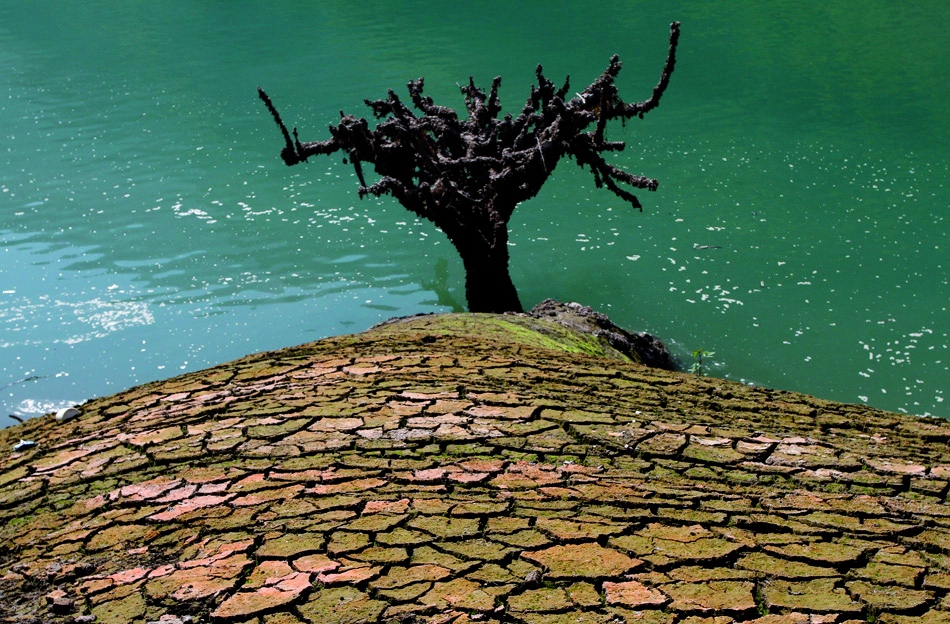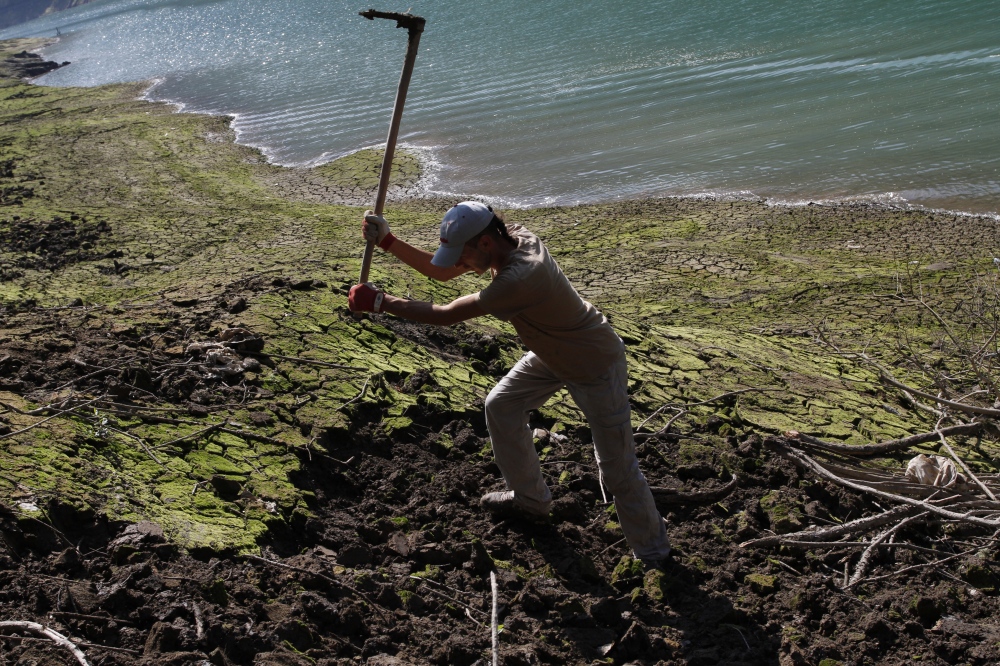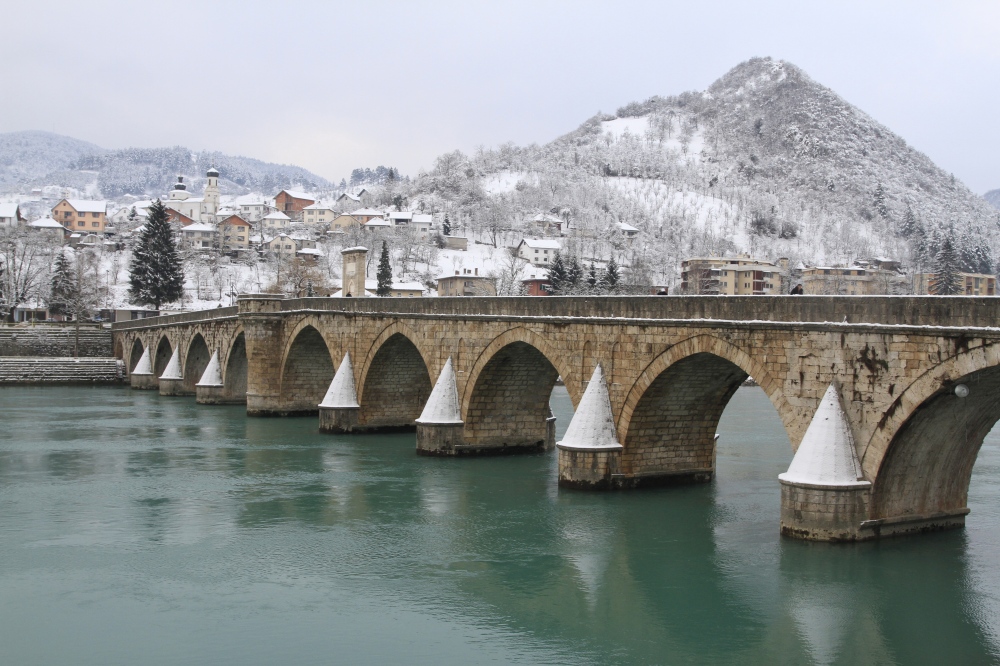At the age of 12, I survived the Bosnian war hiding in basements, where I listened to the stories of slaughter. Since moving to America, I have met Bosnian Muslim women living in Kentucky, who still wait to find the bodies of their sons and husbands who were killed 20 years ago.
Their stories brought me back to Bosnia. In 2010, I accompanied researchers from the Missing Persons Institute (MPI), to Lake Perucac in the city of Visegrad. I was overwhelmed when I realized that thousands of bodies lay beneath the water. But I felt the necessity to document this in order to show why the women around the world wait for so long for their loved ones to be found.
Only in the last century we have seen genocides in Germany, Bosnia, Rwanda, Somalia and Guatemala. In 20 years, 500 different mass graves have been discovered in Bosnia. In this particular case, thousands may never find their loved ones.
The nearby dam in a predominantly Serbian town, on the border with Visegrad, began fixing the turbines which caused Lake Perucac to dry. The MPI began a massive search with hundreds of volunteers to find the missing bodies from 1992. Sadly, the lake was flooded before the search was completed. Another injustice was done upon those who not only lost their loved ones, but now lost hope of ever finding them. It felt as if the war that ended for me, was still going on for thousands of others, even two decades after.
From 1992 to 1995 during the Bosnian war, more than 30,000 people were killed, and of those, 3,000 were killed in Visegrad. Approximately 800 bodies were thrown in Lake Perucac.
I stood at the Lake Perucac, watching the water float over the areas people dug the ground just a day before. I thought about the women I met in Kentucky. I thought about those I watched with shovels in their hands, and I thought of all the Somali people who feel close to Bosnia because of this instance, knowing they all were waiting for a closure, and not knowing if they will ever find it.
The story about Lake Perucac is an example of genocide and the mess it has left decades later.















